Apr 2, 2024 12:59 PM
Saxophonist, Sonic Explorer Casey Benjamin Dies at 45
Casey Benjamin, the alto saxophonist, vocalist, keyboardist and producer who stamped his distinctive sounds on the…
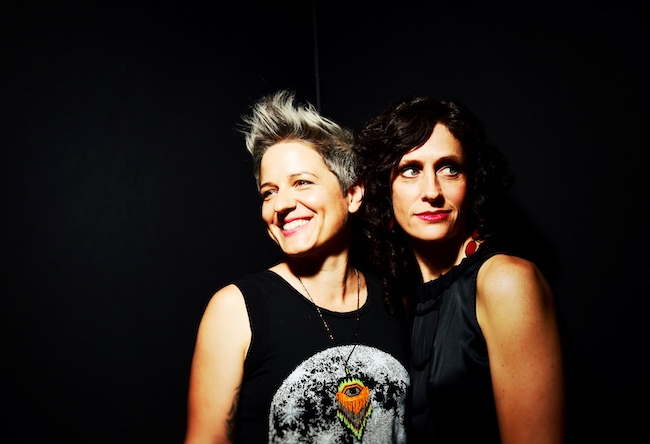
For almost a decade, violinist Jenny Scheinman (right) and drummer Allison Miller have worked together in the latter’s Boom Tic Boom ensemble. Their new collaborative group is Parlour Game.
(Photo: Shervin Lainez)Jenny Scheinman admits she’s led a charmed life, as far as her music career goes. The violinist is unlike a number of contemporary jazz musicians in that she never studied music in college, choosing to major in English instead. Perhaps it’s because she already had a firm grasp on it, listening to her father’s jazz records as a young girl, improvising by age 12 and knowing in high school all she ever wanted to do was be in a band, playing jazz.
Her dream was realized soon enough as a prodigy breaking into the Bay Area’s acid-jazz scene, then moving to New York and joining guitarist Bill Frisell’s band during her early twenties, and eventually landing gigs with Jason Moran, Nels Cline and Norah Jones. She even crossed the jazz/rock divide to work with artists like Lucinda Williams. And for almost a decade, she’s been a part of Allison Miller’s Boom Tic Boom, forging a close bond with the drummer/bandleader.
Scheinman and Miller also now co-lead Parlour Game, a quartet with bassist Tony Scherr and the undeniably talented pianist Carmen Staaf. The ensemble’s self-titled debut on the Royal Potato Family imprint is a collection of whimsical melodies with infectious rhythmic underpinning throughout. It’s feel-good music by design, making it difficult for any listener to deny the eloquent and joyful collaborations.
DownBeat had an opportunity to chat with Scheinman by phone about moving to New York from California, the musicians who have shaped her musical life, her new album, finally having her own band and being on the road.
The following has been edited for length and clarity.
You’ve been in New York since 2000?
There was kind of a mass migration from the Bay Area, [and] I was a part of that, between 1998 and 2001. I sort of slowly made it there: I’d go and spend longer and longer periods of time, and then I finally gave up my apartment in Berkeley.
What caused the “mass migration”?
You know, in some ways I feel a little bit guilty about having participated in [it]. I feel that area is chronically afflicted with people departing for New York. It just doesn’t seem to have a stable enough and loyal enough local jazz community. It has some [players], but clubs seem to come and go. There were so many clubs in the Mission and on Market, and people were gigging constantly, and there was a great audience for it. But that [scene] sort of faded and other things haven’t totally taken its place.
Do you remember when you first met or played with Allison Miller?
We were both living in Brooklyn, just being working jazz musicians, and I ran into her a couple of times. The sort of “bonding tour” we had was a two-and-a-half-week tour in China. She’s a joy to be on the road with, to be on an adventure with. Starting a band in this little niche is definitely an adventure and a risk, and you have to do it with commitment to the music, and [with] love of the people you are doing the music with. Otherwise, you might as well go back to school or work at Starbucks.
Did you meet Carmen through Allison?
Yeah. I met Carmen because she was subbing in Boom Tic Boom, and our first gig together was in Iceland. We did the Reykjavík Jazz Festival; she was mind-blowing. She has an extremely wide range of possible expressions, attitudes and influences. It truly is different every night, more than a lot of people I play with. She still has this really clear respect for the dance underneath, which is more and more rare among modern jazz musicians. And “feel” is, for me, really the thing that makes everything else even relevant. It has to feel good, at least in the kind of music we play in this band.
Is this all original music that was written specifically for this band?
Yep. I mean, a few of the tunes were written before the band formed, but they found their home here, and it was meant to be. Over the years, I’ve collected a bunch of tunes that needed a certain jazz band to play them, a band like this. And those have filtered into the repertoire; we have a bigger repertoire than what’s on the album. “Play Money” I definitely wrote for the band. “116th” I had been playing around with ...
What is the significance of the title, “116th And Congress”? Is that an intersection?
I wish that I had been more obvious about it. It’s [about] the 116th Congress that was just voted in, which is totally diverse and full of awesome people. But it’s also a crossroads. We’re at sort of a political crossroads.
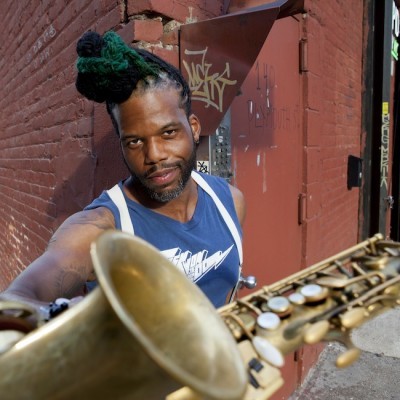
Benjamin possessed a fluid, round sound on the alto saxophone, and he was often most recognizable by the layers of electronic effects that he put onto the instrument.
Apr 2, 2024 12:59 PM
Casey Benjamin, the alto saxophonist, vocalist, keyboardist and producer who stamped his distinctive sounds on the…
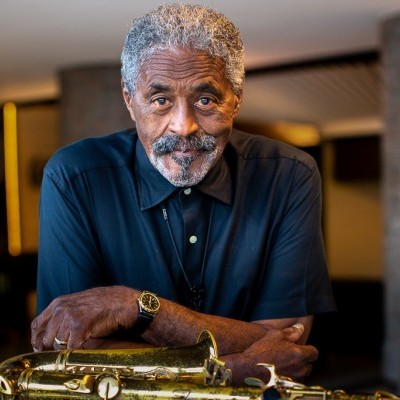
“He’s constructing intelligent musical sentences that connect seamlessly, which is the most important part of linear playing,” Charles McPherson said of alto saxophonist Sonny Red.
Feb 27, 2024 1:40 PM
“I might not have felt this way 30 to 40 years ago, but I’ve reached a point where I can hear value in what people…
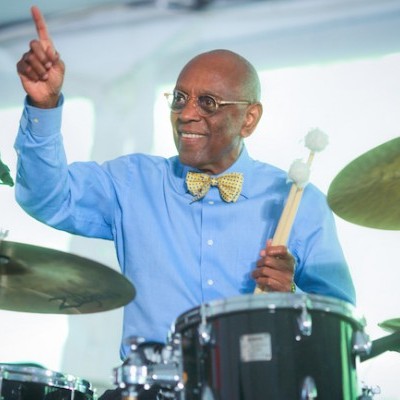
Albert “Tootie” Heath (1935–2024) followed in the tradition of drummer Kenny Clarke, his idol.
Apr 5, 2024 10:28 AM
Albert “Tootie” Heath, a drummer of impeccable taste and time who was the youngest of three jazz-legend brothers…
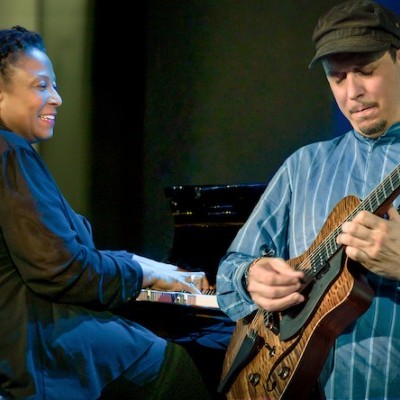
“Both of us are quite grounded in the craft, the tradition and the harmonic sense,” Rosenwinkel said of his experience playing with Allen. “Yet I felt we shared something mystical as well.”
Mar 12, 2024 11:42 AM
“There are a few musicians you hear where, as somebody once said, the molecules in the room change. Geri was one of…
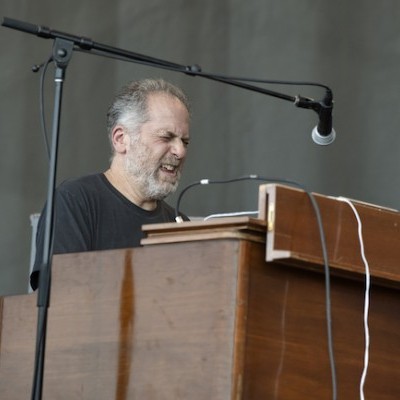
Larry Goldings’ versatility keeps him in high demand as a leader, collaborator and sideman.
Feb 21, 2024 10:45 AM
Are you having any fun? Larry Goldings certainly is. Consider just two recent examples:
Scene 1: “If anyone had…